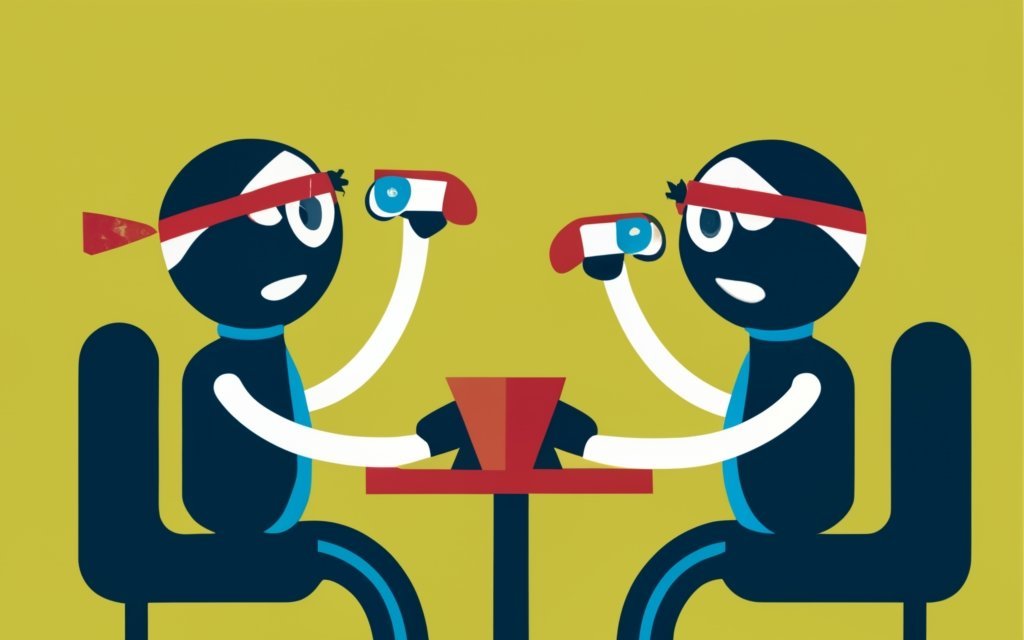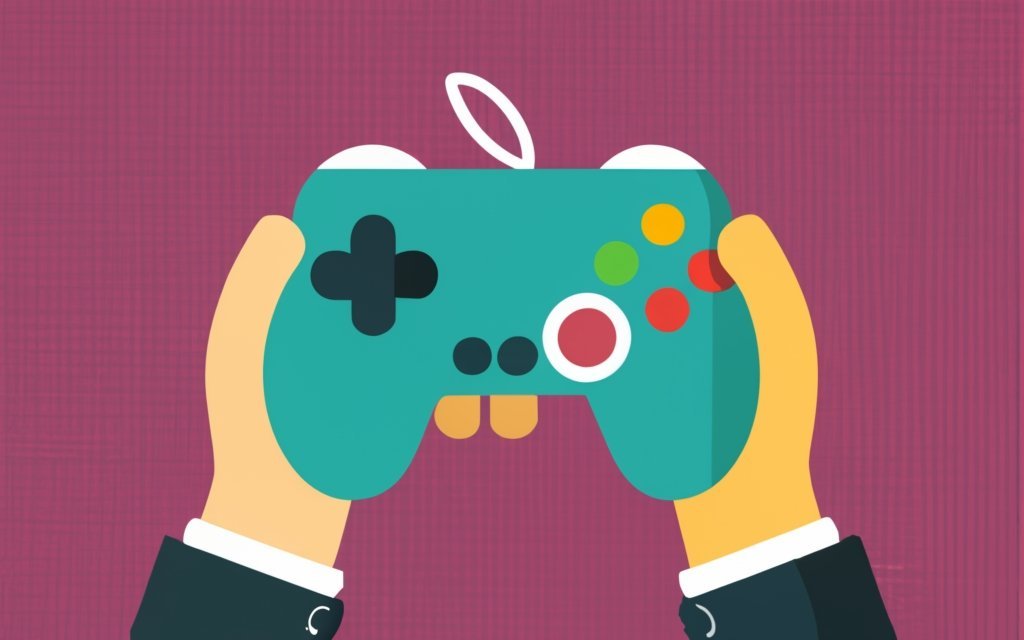In the realm of digital entertainment, video games have become a significant part of our culture. They offer immersive experiences that can engage players for hours on end, and their themes range from fantasy and adventure to strategy and simulation.
One topic that has garnered considerable attention is the relationship between video game violence and prosocial behavior. This article will delve into this intriguing relationship, exploring the effects of violent video games on prosocial behavior and the potential implications for game developers, parents, and educators.
The relationship between video games and behavior has been a subject of interest in the field of psychology and gaming studies. Specifically, the impact of violent video games on prosocial behavior has been a topic of debate.
Prosocial behavior refers to actions that benefit others or society, such as cooperation, sharing, and helping. On the other hand, violent video games often involve scenarios where characters engage in harmful actions towards others. The question is whether playing these games can lead to an increase in violent behavior or a decrease in prosocial behavior.
Understanding the relationship between video games and behavior is crucial for several reasons. First, it can help inform parents, educators, and policy makers about the potential impacts of video games on children and adolescents.
Second, it can guide the development of guidelines and regulations for video game content, ensuring that it promotes positive behavior and values. Lastly, it can contribute to the broader understanding of how digital media can influence human behavior and cognition.
In this article, we will explore the effects of violent and prosocial video games on prosocial behavior, the implications of these effects for the debate about violent media and aggression, and the potential benefits of prosocial video games.
We will also discuss the limitations of the current research and provide recommendations for future research in this area. By the end of this article, we hope to provide a comprehensive understanding of this complex issue and contribute to the ongoing discussion about the role of video games in shaping behavior.
Video game violence and prosocial behavior
The relationship between video games and behavior has been a subject of interest in the field of psychology and gaming studies. Specifically, the impact of violent video games on prosocial behavior has been a topic of debate. Prosocial behavior refers to actions that benefit others or society, such as cooperation, sharing, and helping.
On the other hand, violent video games often involve scenarios where characters engage in harmful actions towards others. The question is whether playing these games can lead to an increase in violent behavior or a decrease in prosocial behavior.
The importance of studying the relationship between video games and behavior.
Understanding the relationship between video games and behavior is crucial for several reasons. First, it can help inform parents, educators, and policy makers about the potential impacts of video games on children and adolescents.

Second, it can guide the development of guidelines and regulations for video game content, ensuring that it promotes positive behavior and values. Lastly, it can contribute to the broader understanding of how digital media can influence human behavior and cognition.
An overview of the article.
This article delves into the intriguing relationship between violent video games and prosocial behavior. It explores the various studies conducted on this topic, their methodologies, and their findings.
The article also discusses the implications of these findings for the gaming industry, parents, educators, and policy makers. The aim is to provide a comprehensive understanding of this complex issue and contribute to the ongoing discussion about the role of video games in shaping behavior.
The findings of correlational, longitudinal, and experimental studies on the effects of prosocial video games on prosocial behaviors.
Studies conducted in the U.S., Singapore, and Japan have shown that playing prosocial video games can have a positive impact on prosocial behavior. These studies used a variety of methodologies, including correlational, longitudinal, and experimental designs, to test the hypothesis that prosocial video games can increase prosocial behavior.
The findings from these studies have been consistent across different methodologies, ages, and cultures, providing robust evidence of a prosocial game content effect.
How playing prosocial video games tends to increase prosocial behavior tendencies.
Playing prosocial video games can increase prosocial behavior tendencies in several ways. First, these games can provide models and give direction, which can lead to the development of prosocial behaviors.
Second, games can require practice and provide immediate reinforcement or feedback, which can further enhance prosocial behavior. Lastly, if a game requires prosocial behaviors to succeed, then prosocial behaviors should be increased immediately following the game.
The implications of these findings for the debate about violent media and aggression.
The findings from these studies have significant implications for the ongoing debate about violent media and aggression. They suggest that prosocial video games can counteract the potential negative effects of violent video games on aggression.

By promoting prosocial behavior, these games can contribute to a more positive culture of gaming. Furthermore, these findings can inform the development of guidelines and regulations for video game content, ensuring that it promotes positive behavior and values.
III. Violent Video Games, Externalizing Behavior, and Prosocial Behavior.
The findings of a five-year longitudinal study on the effects of violent video games on externalizing behavior and prosocial behavior during adolescence.
A five-year longitudinal study conducted during adolescence found that exposure to violent video games was positively related to adolescent aggression. The study also found that normative beliefs about aggression, which are cognitive factors influencing adolescent aggression, mediated the relationship between violent video games and adolescent aggression.
The family environment was found to regulate this mediation process. For individuals with a good family environment, exposure to violent video games only had a direct effect on aggression. However, for those with a poor family environment, there was an indirect effect mediated by normative beliefs about aggression alongside a direct effect.
How violent video game content seems to be much more common than prosocial content in mainstream gaming.
Violent video game content seems to be much more common than prosocial content in mainstream gaming. This is due to several factors, including market demand, commercial considerations, and the cultural and societal trends that favor violent themes.
However, this does not mean that prosocial video games are not important or beneficial. In fact, they can play a crucial role in promoting positive behavior and values among gamers.
The implications of these findings for the debate about violent video games and their impact on behavior.
The findings of this study have significant implications for the ongoing debate about violent video games and their impact on behavior. They suggest that violent video games can have a significant effect on adolescent aggression, and this effect can be mediated by normative beliefs about aggression. The family environment also plays a crucial role in this process.
These findings highlight the need for more research on the impact of violent video games on behavior, as well as the need for interventions to mitigate potential negative effects. They also underscore the importance of prosocial video games in promoting positive behavior and values among gamers.
IV. The Dark and Bright Side of Video Game Consumption: Effects of Violent and Prosocial Video Games.
Discuss the findings of a review article on the effects of violent and prosocial video games on behavior.
A review article by Anderson et al. provides a comprehensive overview of the effects of violent and prosocial video games on behavior. The study found that violent video games can have a significant effect on aggression, empathy, and prosocial behavior.
However, the effects can vary depending on several factors, including the individual’s normative beliefs about aggression, the family environment, and the type of video game content.

The study also found that prosocial video games can have a positive effect on prosocial behavior, suggesting that they can counteract the potential negative effects of violent video games.
How violent video games should lead to increases in aggression, according to psychological theorizing such as social learning theory.
According to psychological theories such as social learning theory, violent video games should lead to increases in aggression. Social learning theory suggests that individuals learn by observing others, and violent video games often involve violent scenarios that can be observed and imitated by the players.
Therefore, playing these games can increase aggression by reinforcing aggressive behaviors. However, it’s important to note that the relationship between violent video games and aggression is complex and can be influenced by various factors, including the individual’s normative beliefs about aggression and the family environment.
The debate about violent video games and their impact on behavior.
The findings of this review article have significant implications for the ongoing debate about violent video games and their impact on behavior. They suggest that violent video games can have a significant effect on aggression, but this effect can be moderated by several factors.
This suggests that the relationship between violent video games and aggression is not straightforward and requires further research. The review also highlights the importance of prosocial video games in promoting positive behavior and values among gamers.
These findings can inform the development of guidelines and regulations for video game content, ensuring that it promotes positive behavior and values.
V. Video Games and Prosocial Behavior.
Discuss the findings of a study on the impact of violent video games on prosocial behavior.
A study conducted during adolescence found that exposure to violent video games was positively related to adolescent aggression. The study also found that normative beliefs about aggression, which are cognitive factors influencing adolescent aggression, mediated the relationship between violent video games and adolescent aggression.
The family environment was found to regulate this mediation process. For individuals with a good family environment, exposure to violent video games only had a direct effect on aggression. However, for those with a poor family environment, there was an indirect effect mediated by normative beliefs about aggression alongside a direct effect 1.
Explain how violent video games can reduce prosocial behavior.
Violent video games can reduce prosocial behavior in several ways. According to Bandura’s social cognitive theory, violent video games can initiate adolescents’ observational learning. In this situation, not only can they imitate the aggressive behavior of the model but also their understanding and acceptability about aggression may change.
Therefore, normative beliefs about aggression can also be a mediator between violent video games and adolescent aggression. This suggests that violent video games can reduce prosocial behavior by changing individuals’ beliefs about aggression and encouraging aggressive behavior 1.
Discuss the implications of these findings for the debate about violent video games and their impact on behavior.
The findings of this study have significant implications for the ongoing debate about violent video games and their impact on behavior. They suggest that violent video games can have a significant effect on aggression, and this effect can be mediated by normative beliefs about aggression.
The family environment also plays a crucial role in this process. These findings highlight the need for more research on the impact of violent video games on behavior, as well as the need for interventions to mitigate potential negative effects. They also underscore the importance of prosocial video games in promoting positive behavior and values among gamers.
VI. Conclusion.
In Summary:
The main findings of this article suggest that violent video games can have a significant effect on aggression, but this effect can be mediated by normative beliefs about aggression.
The family environment also plays a crucial role in this process. However, prosocial video games can have a positive effect on prosocial behavior, suggesting that they can counteract the potential negative effects of violent video games.
Discuss the limitations of the studies reviewed.
The studies reviewed in this article have several limitations. First, they are based on correlational, longitudinal, and experimental designs, which can have limitations in terms of causality and generalizability.
Second, they focus on adolescents, which may limit the generalizability of the findings to other age groups. Third, they are based on self-reported measures of behavior, which can be subject to bias and error.
Future research should aim to address these limitations. For example, it could use more rigorous experimental designs to test causal relationships, include a diverse range of age groups, and use objective measures of behavior.
It could also explore the mechanisms through which violent video games and prosocial video games affect behavior, such as the role of normative beliefs about aggression and the family environment.
Conclusion.
In conclusion, it is crucial for game developers, parents, and educators to consider the potential impact of video games on behavior. While violent video games can have a significant effect on aggression, prosocial video games can promote positive behavior and values.
Therefore, it is important to develop and promote prosocial video games, and to guide parents and educators in understanding and mitigating potential negative effects of violent video games.You should read another article i wrote about >>>>> Video Game Violence and Desensitization to Violence in the Media to learn more.






